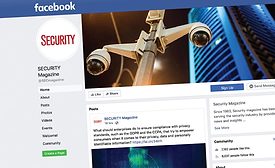Cybersecurity
Education & Training
Orchestrating Cybersecurity Across the Business Ecosystem
A cyber leader’s guide to learning the business and providing precise support.
November 7, 2019
Defending Against Ransomware: The Growth of Targeted Attacks
Ransomware attacks are getting bolder and affect enterprises of all sizes.
November 7, 2019
Sign-up to receive top management & result-driven techniques in the industry.
Join over 20,000+ industry leaders who receive our premium content.
SIGN UP TODAY!Copyright ©2024. All Rights Reserved BNP Media.
Design, CMS, Hosting & Web Development :: ePublishing














